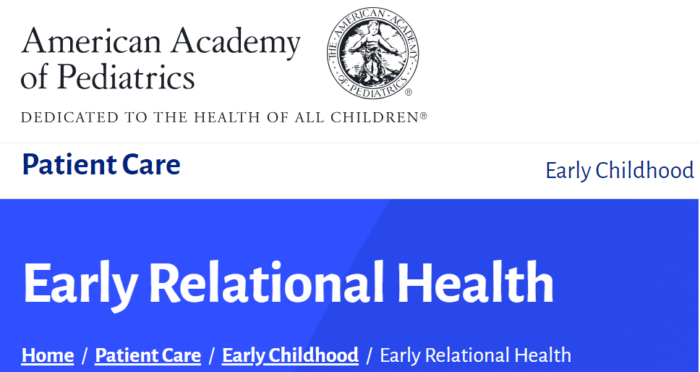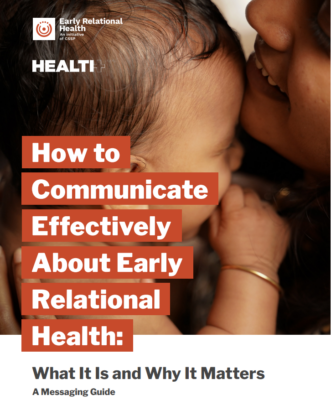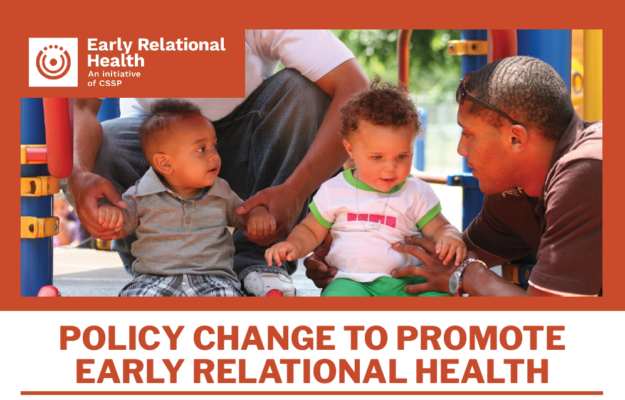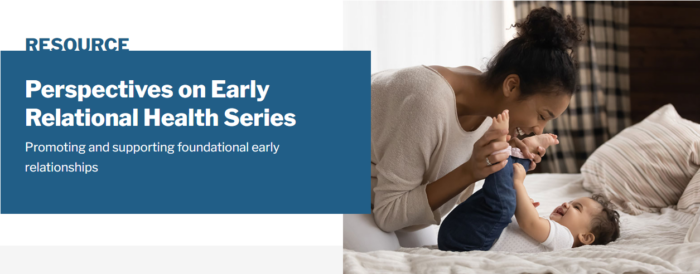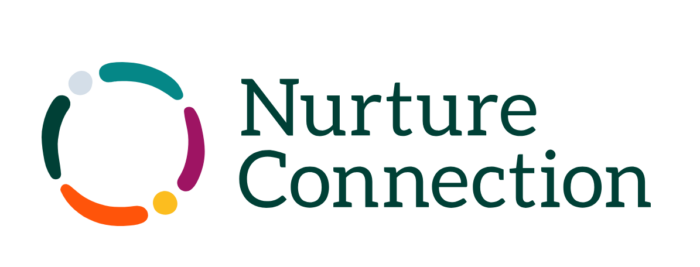Early Relational Health for Primary Care Providers

Early relational health (ERH) refers to healthy, foundational relationships between very young children (birth-age 3) and their caregivers. By identifying concerns early and connecting families to appropriate resources, pediatricians can build families’ capacity for cultivating healthy foundational relationships with their young children. Framing ERH screening as a check-in that is offered to all families to build on their relational strengths can help address stigma or concerns that parents might associate with assessment.
This guide provides information for primary care providers and the early childhood workforce about what ERH is, ERH screening considerations, and how to support ERH in pediatric primary care. The guide also summarizes several ERH measurement tools that have been proposed for use in clinical practice, including the Early Relational Health Screen (ERHS), Welch Emotional Connection Screen (WECS), and Early Relational Health – Conversations (ERH-C) model.
Partnership with families drives ERH promotion. Screening tools should be implemented in the context of authentic, trusting partnerships with families to engage in conversations about their relational strengths, resources, and vulnerabilities. Factors beyond the individual can add substantially to family stress and thereby impact family relationships. Such factors could include poverty, food and housing insecurity, community violence, and exposure to racism or discrimination. At the same time, families draw on cultural values and community resources to engage in developmentally nurturing ways with their children.
Screening tools should be implemented in the context of authentic, trusting partnerships with families to engage in conversations about their relational strengths, resources, and vulnerabilities.
